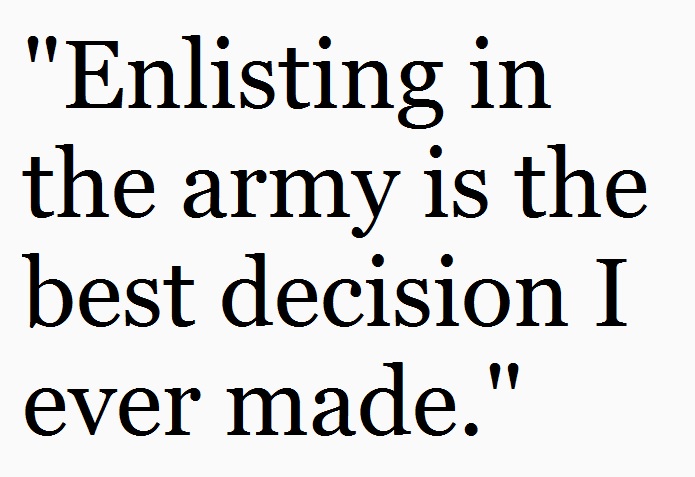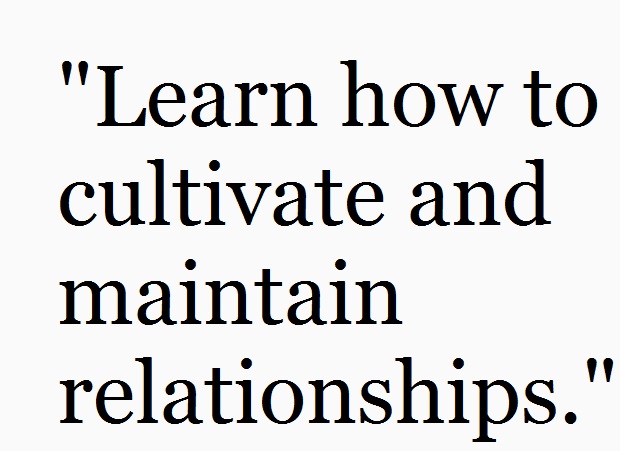Alexander Myers, a war veteran having served two tours in Vietnam, and an administrative professional with over 20 years of experience chatted with me about how the military prepared him for a long-standing career in administration, some of the more unconventional tasks he was faced with, and how work and play, to him, are one in the same.
Elle Hernandez: Let’s take it from the top. How did you start your career as an admin?
Alexander Myers: After high school, I attended the Hampton Institute where I developed a passion for opera and opera theatre. I transferred to Temple University in Philadelphia and enrolled in their Opera Theatre program. Living in Philadelphia would put me in touch with numerous classical music schools, concerts and opera performances, connecting me directly to New York City where opera flourished.

During my year at Temple, I decide I wanted to establish my own independence and in order to do that, I would need a source of income. I enlisted in the Army to learn a trade, earn a salary and, at the end of my tour of duty, have the economical means to finish my college degree. Enlisting in the army is the best decision I ever made. I completed my Basic Training at Fort Bragg in North Carolina, which, I admit, made me grow up pretty fast. After Basic I went to Military Occupational Specialty
School.
EH: What is Military Occupational Specialty School?
AM: MOS trains you for the job you’ll do while in the service. My enlistment recruiter suggested working as an office professional, and enrolled me in the Officers’ Training School in Indianapolis, Indiana, a training school for Army Officers and support staff personnel (such as administrators). The course lasted six months and upon completion I was assigned to work with and for Colonels and Generals.
EH: What did you do after MOS training?
AM: I was deployed to Vietnam. I served two tours of duty in Vietnam supporting Colonels at the 2nd Signal Group stationed first in Vung Tau, and later in Long Binh, Vietnam.
EH: You took time off from Temple University to pursue your independence. Did serving in the war change your perspective on what it means to be independent, and how?
AM: To become an adult one must leave the security of home and learn to live in the world. By joining the service, I had the security of a regular paycheck, housing, food and clothing, and the ability to mature with a stable foundation supporting me. I knew that my three-year enlistment would give me the opportunity to learn about and develop myself in preparation for the tough times I may face in the future. The military fully prepared me to be a successful administrative professional.
EH: What impact did serving in the military have on your career as an administrative professional?
AM: My military experience taught me how to endure the challenges I would face in administration and in life. Military training, especially Basic, gave me the strength to persist no matter how tough the task, a tried and true virtue of administration.
EH: You have a Bachelor’s degree in Applied Voice and Opera Theatre. Military administration and opera feel distant from one another.
AM: I enlisted in the army for three years and received a six-month early-out for my service in Vietnam. I then returned to Temple U to finish my degree in Opera Theater and spent about three years at the Settlement Music School in Philadelphia teaching Voice and Opera Theatre. I always loved to sing, although I never felt that I was a skilled singer; I didn’t care. I love opera. The idea of telling a story and feeling it through music is fascinating. During those years I continued to work with and for temporary agencies and enjoyed the administrative work then just as much as I had in Vietnam.
EH: Why didn’t you continue to pursue your dreams of music?
AM: For me, music was more of a vocation than an occupation. I want to continue learning about opera, attending performances and staying current. I enjoyed teaching, but administration is a
lucrative career that has allowed me to more fully pursue my passion for opera. I worked hard and proved myself as an administrative professional through my experiences in the military and
beyond; I chose to continue my journey in administration.
EH: Do you regret your decision at all?
AM: Not at all. I never let go of my passion for music. Administration afforded me the finances to pursue both of my passions: administration and music. I’ve spent summers in Santa Fe for Opera Season as well as travelled to San Francisco to see premieres. Living in Philadelphia, I was able to spend many weekends in New York going to see operas at the Met, and even now, any chance I get, I go to the theatre. You can’t let go of any of your passions, even if they don’t directly end up being part of your professional career. Take the time to develop each to the fullest.

EH: Tell me about your first administrative position.
AM: I got a job at the Wharton School through a temp agency. I started out assisting the banking department… the official title, “The Department of Finance and International Banking and Finance Program,” a mouthful. I assisted in preparing class schedules, copying class materials, organizing meetings and other administrative tasks. Eventually, I was hired full-time as the Administrative Assistant to the Chairman and Director. I worked at the Wharton School for 4 years before being laid off due to restructuring.
EH: You spent the next eight years at Thomas Jefferson University, correct?
AM: Yes. I returned to a temp agency and got a temporary assignment serving as the assistant to the Budget Manager in the Business Office at Jefferson Medical School within Thomas Jefferson University. I learned hands-on how to develop budgets on very simple, very basic budgeting software; nothing like Excel. I was given very easy projects at first, and when I finished them, I asked for more to do. When I finished those, again, I asked for more. As a “disposable” temporary worker, it’s critical to continually prove yourself. Eventually, the tasks assigned to me became increasingly more challenging, and because I was able to prove myself, I was hired full-time and promoted. I think the military really prepared me for the hard work and persistence that inevitably comes with temp work. I spent eight years at Thomas Jefferson University.
EH: What’s the biggest difference between being an Administrative Assistant and being an Executive Assistant?
AM: Fundamentally, the positions are the same. The Executive Assistant role is a 24/7 job. You have to be available at any time to handle anything that comes up. Although the emergencies you face as a civilian are different than those you face at war, I think my time in the military taught me to handle these matters in a calm, professional way. Personal work and business blends together, and it’s critical to know your boundaries. You have to maintain some distance; it’s as though there’s a glass wall between the two of you. You serve different functions for both their personal life and their business. In an emergency situation, you’re the closest, most accessible person to them; you have to be trustworthy, available and able to handle confidential matters with discretion. A lot of the CEO/EA relationship is how you manage personal matters, business matters and everything in between.
EH: Is it easier to support military personnel or chief executives, and what are some of the most notable similarities/differences?
AM: Military support is all about taking orders and doing exactly what you are told with no expressed emotions – being prepared to give your all at a moment’s notice. If you want to
separate from the military—that is, with honorable discharge—you must “stay the course,” meaning you must complete the goals regardless of any obstacles or criticism. Civilian support, or executive support, allows you more of a choice and the ability to negotiate more freely. If you are unhappy with your work situation, you can choose to depart and accept another position without having to finish a term. It is professional to give a two-week notice, but you could leave whenever you wanted. The actual work, military or civilian, is very similar; support to the fullest extent of your ability. The structures are what differ.
EH: Have you dealt with tyrants along the way?

AM: No, I’ve been lucky. You have your moments of difficulty, but it’s more about figuring out their temperament; you have to learn to be a sounding board for them, a release channel. That doesn’t mean my interactions have never been uncomfortable. You are in a subordinate position, but that doesn’t mean you need to be subservient. Take responsibility for your mistakes, ask what you can do differently, and do your best. The executive you support also needs to be able to manage their temperament.
EH: What are the three qualities every administrative professional must possess?
AM: Passion, dependability and responsibility.
EH: Did you ever draw a line with respect to personal work, in other words, was there anything you absolutely wouldn’t do?
AM: Professionally, I have yet to encounter a task that I absolutely would not do. I helped direct a move from New York to Philadelphia. I set up their health insurance, arranged car services, coordinated family vacations, made doctor’s appointments and ordered gifts. Sometimes I would be handed a picture of something—no description, no caption, no brand name, just the picture—and told, “Can you order this?” It was like a treasure hunt. It may not have been an accounting project, but personal work is still important to an executive’s success in business, and
to a successful EA/CEO partnership.
EH: Was there every a “doozy” in terms of personal work?
AM: It was Christmas Eve’s Eve—the day before Christmas Eve—and the CEO had ordered all of the gifts online and inadvertently shipped them to their home in Philadelphia. The problem was that they never spent Christmas in Philadelphia; they spent it in Florida. I got the call that the gifts were being shipped to the wrong place that day. The HR Director of that particular company and I had to wait for the gifts to arrive at the UPS distribution center, intercept their delivery, repackage them and re-ship them to Florida in time for Christmas Day.
It was my job to get it done. I was proud that I was able to accomplish that task. If I ever need to do something like that ever again, I know I can.
EH: What’s the best piece of advice you’ve ever received?
AM: Draw from what you see, watch others in leadership positions and imitate them. Learn from the executives you support.
EH: As an administrator with over 20 years of experience, what advice would you give other administrative professionals?

AM: Leverage your networks. The current market is very different than it was 10 years ago. Get to know people’s professional business interests, keep in touch with your contacts, and remain relevant. You never know when you may need support, or when someone in your network will reach out to you for support. It may not happen immediately, but you have to learn how to cultivate and maintain those relationships.
I started as a temp and worked my way up; that’s the only way to be successful in business—work hard! And if you find something isn’t working for you, change your approach, learn about your market, and make a plan.
EH: Any last words?
AM: Every job is temporary.
>The opinions expressed in this article are those of the interviewee, William Alexander Myers, and do not reflect in any way those of the institutions to which he is affiliated. This includes the Hampton Institute, Temple University, Fort Bragg, the Wharton School, Thomas Jefferson University, the Settlement Music School in Philadelphia, Pennsylvania Academy of Fine Arts and Xanadoo.







